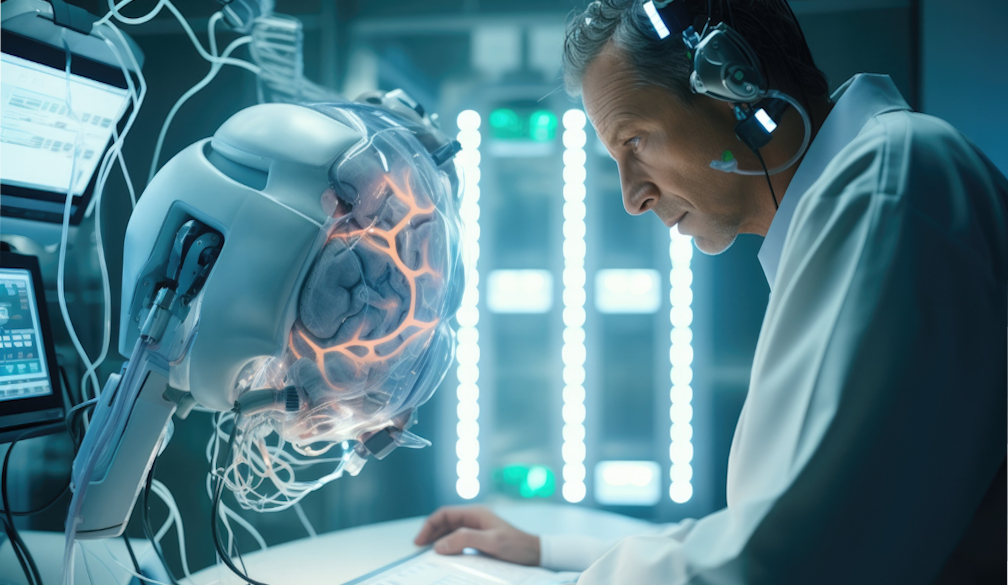The Rise of AI in Healthcare: Ethical Considerations and Clinical Applications

The advent of artificial intelligence (AI) in healthcare has heralded a new era of medical innovation, transforming patient care, research methodologies, and healthcare administration. As AI technologies continue to evolve, their integration into the healthcare sector offers immense potential to enhance patient outcomes, streamline clinical operations, and personalise medicine. However, this digital revolution also brings forth a host of ethical considerations that must be navigated with caution.
In this blog post, we explore the multifaceted impact of AI in healthcare, focusing on its clinical applications and the ethical dilemmas it presents.
Clinical Applications of AI in Healthcare
The application of AI in healthcare spans a broad spectrum of areas, including diagnostics, treatment planning, patient monitoring, and healthcare management. One of the most promising areas is the use of AI in diagnostics. Machine learning algorithms can analyse complex medical data, such as images from MRIs, CT scans, and X-rays, to identify diseases with a high degree of accuracy, often at earlier stages than previously possible. This capability not only enhances the precision of diagnoses but also significantly reduces the time required to reach them, facilitating quicker patient management decisions.
AI also plays a crucial role in treatment planning and personalised medicine. By leveraging patient data and predictive analytics, AI systems can tailor treatment plans to the individual needs of patients, considering their genetic makeup, lifestyle, and comorbidities. This personalised approach promises to improve treatment efficacy and minimise adverse effects, paving the way for more successful patient outcomes.
Moreover, AI is revolutionising patient monitoring and care management, particularly for chronic diseases. Wearable devices and mobile health apps equipped with AI algorithms can track vital signs, detect abnormalities, and even predict acute medical events before they occur. This real-time monitoring enables timely interventions, empowering patients to manage their health proactively and reducing hospital readmissions.
AI’s impact extends beyond patient care to healthcare administration and practice management. AI-powered practice management software for podiatrists, for example, can automate administrative tasks, optimise appointment scheduling, and enhance patient engagement, allowing healthcare providers to focus more on patient care and less on paperwork. Such technologies not only improve the efficiency of healthcare practices but also significantly enhance the patient experience.
Ethical Considerations of AI in Healthcare
While the benefits of AI in healthcare are undeniable, the integration of these technologies raises significant ethical concerns. One of the primary issues is data privacy and security. The use of AI in healthcare relies heavily on vast amounts of personal health information, posing risks of data breaches and unauthorised access. Ensuring the protection of patient data is paramount, requiring robust cybersecurity measures and strict adherence to data protection regulations.
Another ethical consideration is the potential for bias in AI algorithms. If the data used to train these algorithms are not representative of the diverse patient populations, there is a risk of developing biased systems that could lead to disparities in healthcare outcomes. It’s crucial to implement measures that ensure AI systems are equitable and inclusive, providing benefits to all segments of the population.
Furthermore, the rise of AI in healthcare prompts questions about the impact on the patient-provider relationship. While AI can augment the capabilities of healthcare providers, there is a concern that an overreliance on technology could depersonalise patient care. Maintaining a balance between leveraging AI for its advantages and preserving the human element of healthcare is essential.
Final Thoughts
As we navigate this digital transformation, it’s imperative to remember that technology should serve as a tool to enhance, not replace, the human touch in healthcare. With thoughtful integration and ethical oversight, AI can significantly contribute to a more efficient, effective, and compassionate healthcare system.

























